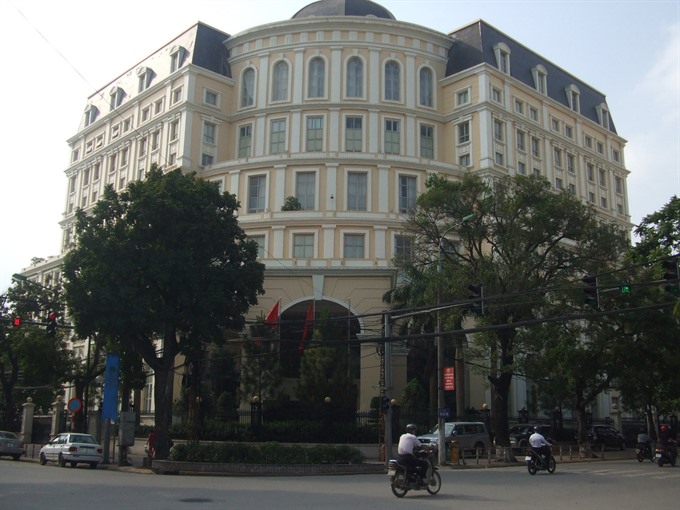The functions and operations of the Vietnam Debt and Asset Trading Corporation (DATC) should be restructured to handle the “next phase” of handling non-performing loans (NPLs), the Finance Ministry (MoF) says.

The functions and operations of the Vietnam Debt and Asset Trading Corporation (DATC) should be restructured to handle the “next phase” of handling non-performing loans (NPLs), the Finance Ministry (MoF) says.
Explaining a new decree that it has drafted, the ministry said in the 13 years since it was established, the DATC has fulfilled its mandate and created a solid foundation for tackling NPLs across the country.
Since its establishment in 2004, the DATC has actively worked to resolve NPLs, purchasing debts of about VND80 trillion (US$3.56 billion), of which $2.8 billion worth of bad debts was disposed of via “a designated mechanism,” while loans worth $762.7 million were settled directly in the market.
The DATC handled the debt and assets of 2,628 State-owned enterprises (SOEs), with the total book value of liabilities and assets estimated at $195.8 million, thereby contributing to improving the enterprises’ financial situation and accelerating the SOE equitisation process.
It has significantly helped improve the economy’s overall bad debt situation, affirming its efficacy as a tool for the Government in handling bad debts and promoting business restructuring across various economic sectors, the MoF said.
However, the DATC has also encountered many difficulties and obstacles including the lack of any breakthrough mechanism for debt trading called for by the Prime Minister’s Decision No. 109/2003 / QD-TTg as well as other guiding circulars issued by the ministry.
Beyond the acquisition of bad debts, DATC’s creditors have not recorded significant improvement during the agency’s debt recovery process, while its financial resources, with a charted capital of about $267 million, was limited compared to the current demand for debt processing, the ministry noted.
To address these shortcomings, the MoF is preparing a new Decree to enhance the DATC’s performance, create a legal framework for the formation and development of a proper market for trading NPLs, and improve State management of the problem.
The new Decree will increase the DATC’s core business rights, enabling it to requisition information and documents relating to debts and assets from creditors and other related parties, and giving it the right to handle collateral assets.
It will also be able to request the assistance of State agencies in obtaining and finalising legal documents needed to secure assets during debt recovery and ask courts to apply simplified dispute settlement procedures.
Furthermore, it will be entitled to sell any receivable debts or other suitable forms of security assets.
The MoF said it was hopeful that these additional functions will facilitate DATC in better fulfilling its mandate in the future.
The DATC has acknowledged the difficulties and challenges it is facing as the NPLs market becomes more competitive while specific mechanisms and policies on debt processing are yet to be completed.
With the Government focusing on restructuring the financial and banking system, the demand for bad debt processing in credit institutions and SOEs has increased in value and number.
By the end of this year, the DATC hopes to complete several debt purchase negotiations even as it co-ordinates with other ministries to speed up the restructuring of SOEs.
Doan Van Thang, General Director the Vietnam Asset Management Company (VAMC), said that the country does have a recognised debt trading market, but its operations were first limited to the DATC, and later the VAMC. — VNS





